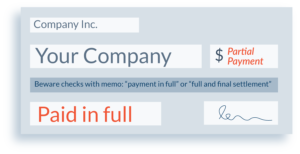
Late payments are a serious problem in the construction industry. That’s particularly true when it comes to retainage payments. Cash flow is light at the end of a project, once the work is complete. The contractor or sub has little leverage left at that point. For too many construction businesses, getting their retainage back becomes a waiting game. In response to this problem, many states have enacted prompt payment laws that set deadlines for payments on a project – including retainage.
Vermont Prompt Payment Act
Most states have enacted their own prompt payment provisions to ensure timely payment on construction projects. Vermont is no exception. The Vermont prompt payment statutes regulate the timing of payments – including retainage – on both public and private projects.
Under VT. Stat. Title 9 §4005(c), a contractor must pay their subcontractor the retainage owed within 7 days after the contractor receives retainage from the owner of the project. Furthermore, the Act states that any retainage which is unreasonably withheld will be subject to interest penalties and attorney’s fees.
Paying retainage with conditions attached is the same as nonpayment
Imagine a scenario where you get the retainage check on time. BUT it states that the check represents payment in full – even though you’re still waiting for another payment. Should you cash the check?
Well, that’s exactly what happened in J & K Tile Co. v. Wright & Morrissey, Inc.
J & K Tile Company v. Wright & Morrissey, Inc.
This case involved Wright & Morrissey, Inc. a prime contractor on a commercial project in Vermont, and J & K Tile Company (J&K), who was subcontracted to do flooring work. The subcontract was for periodic progress payments with retainage being withheld at a rate of 15% until the subcontract work was complete. (That’s already much higher than typical retainage of 5-10%.)
Right from the outset of the project, there were complications and schedule delays. Given the fact that flooring is a late phase trade, J & K’s commencement of work was also delayed.
As a result, the parties agreed to a Memorandum of Understanding. This memo stated that Wright & Morrissey would pay J&K an additional $2,000 for each day the sub had to work past May 21. This wound up being 21 days, for a grand total of $42,000.
Retainage check was issued along with a waiver acknowledging full payment
At the end of the subcontract work, J&K submitted an invoice for the delay payments of $42,000, along with a request for final and retainage payments.
In response to this, Wright & Morrissey sent a response letter declaring that (a) it refused to pay the $42,000, and (b) that it would release retainage, which was pending receipt of a lien waiver, and that the payment represents payment in full.
The following week, Wright & Morrissey sent the retainage check even though J&K hadn’t submitted a lien waiver.
J&K didn’t cash the check. Instead, they asked Wright & Morrissey for assurance that cashing the retainage check wouldn’t waive their claim for the $42,000 in delay payments.
Wright & Morrissey refused. So J&K filed a lawsuit against them. Four months later, while litigation was still pending, J&K finally received written acknowledgment stating that cashing the check wouldn’t waive their delay payment claims. So J&K cashed the check.
Delay payments and prompt payment penalties
Once the dispute finally reached the trial court, J&K was awarded the $42,000 in delay payments, along with interest penalties and attorney fees for the improper withholding of retainage under the prompt payment laws.
Wright and Morrissey appealed the decision.
On appeal: VT Supreme Court declared that retainage was wrongfully withheld
Wright & Morrissey argued that the retainage check was delivered on time according to the VT prompt payment laws. They claimed that J&K could have cashed the check at any point in time. The court rejected this argument entirely.
The judge stated that the check was issued along with documentation stating that it was payment in full while there was still an unresolved payment dispute. That J&K had reasonably feared that endorsing the check would amount to “accord and satisfaction.” They were afraid that doing so would effectively waive any rights to the delay payments.
The VT Supreme Court decided that the trial court had properly awarded interest penalties and attorney fees to J&K under the prompt payment laws.
Be wary when receiving a check with conditions added

This is a common issue in the construction industry. Our CEO Scott Wolf Jr has written extensively about it before, and it also frequently comes up in our Ask an Expert Center:
- Does “final payment” mean the same thing as “payment in full”?
- If a check contains a memo such as paid in full, is the debt considered paid if the payee deposits the check?
Anytime someone receives a check that either states “paid-in-full,” “final payment,” or includes a separate document stating the like, it should be cause for concern.